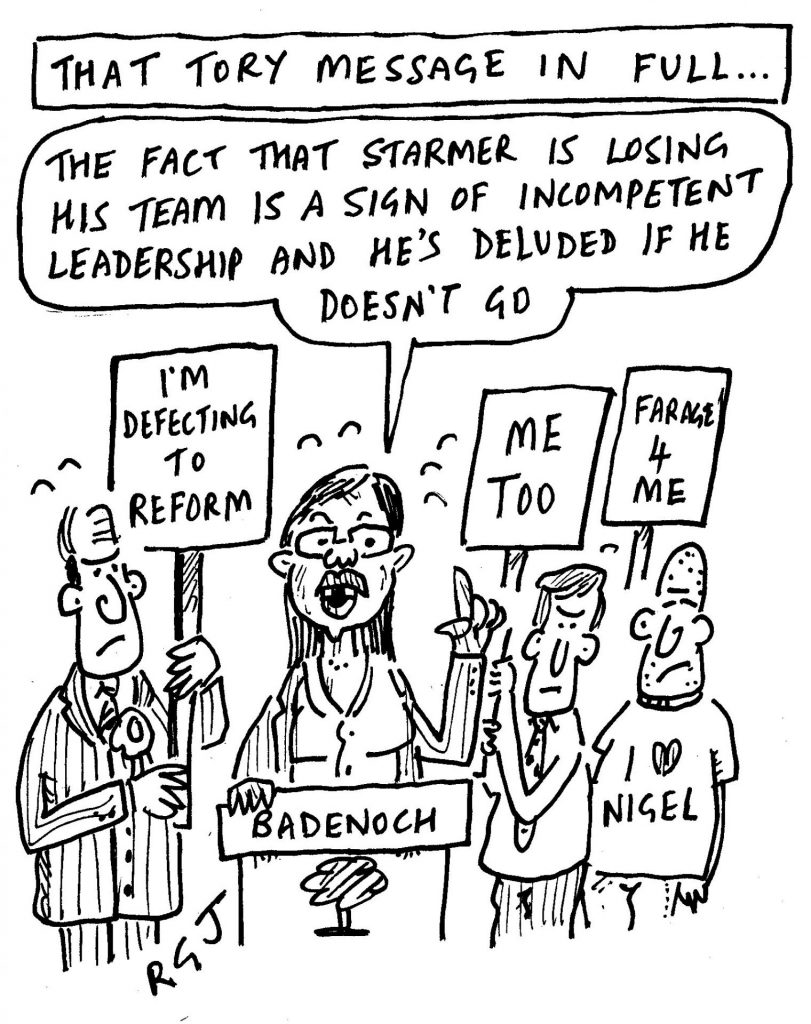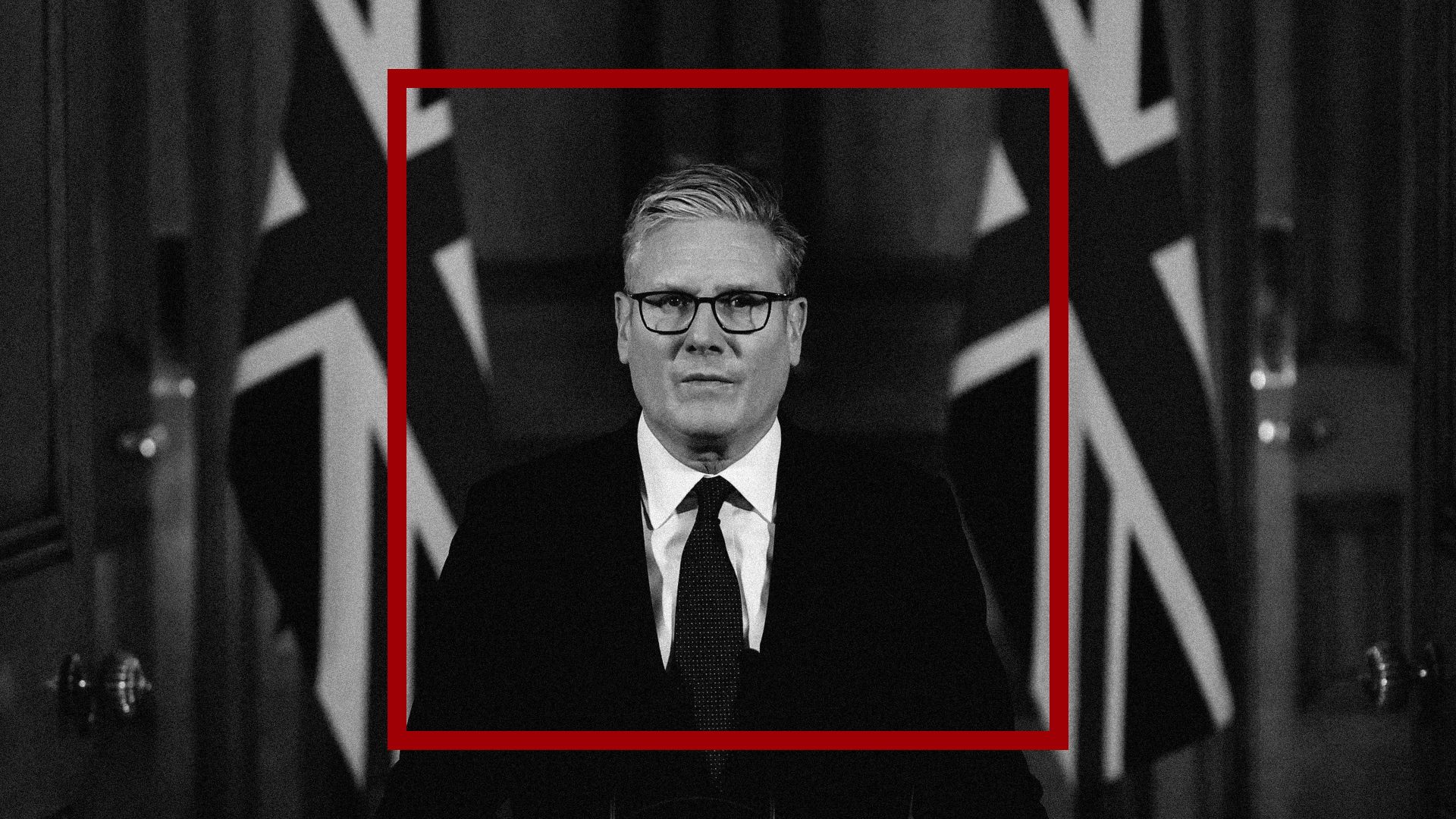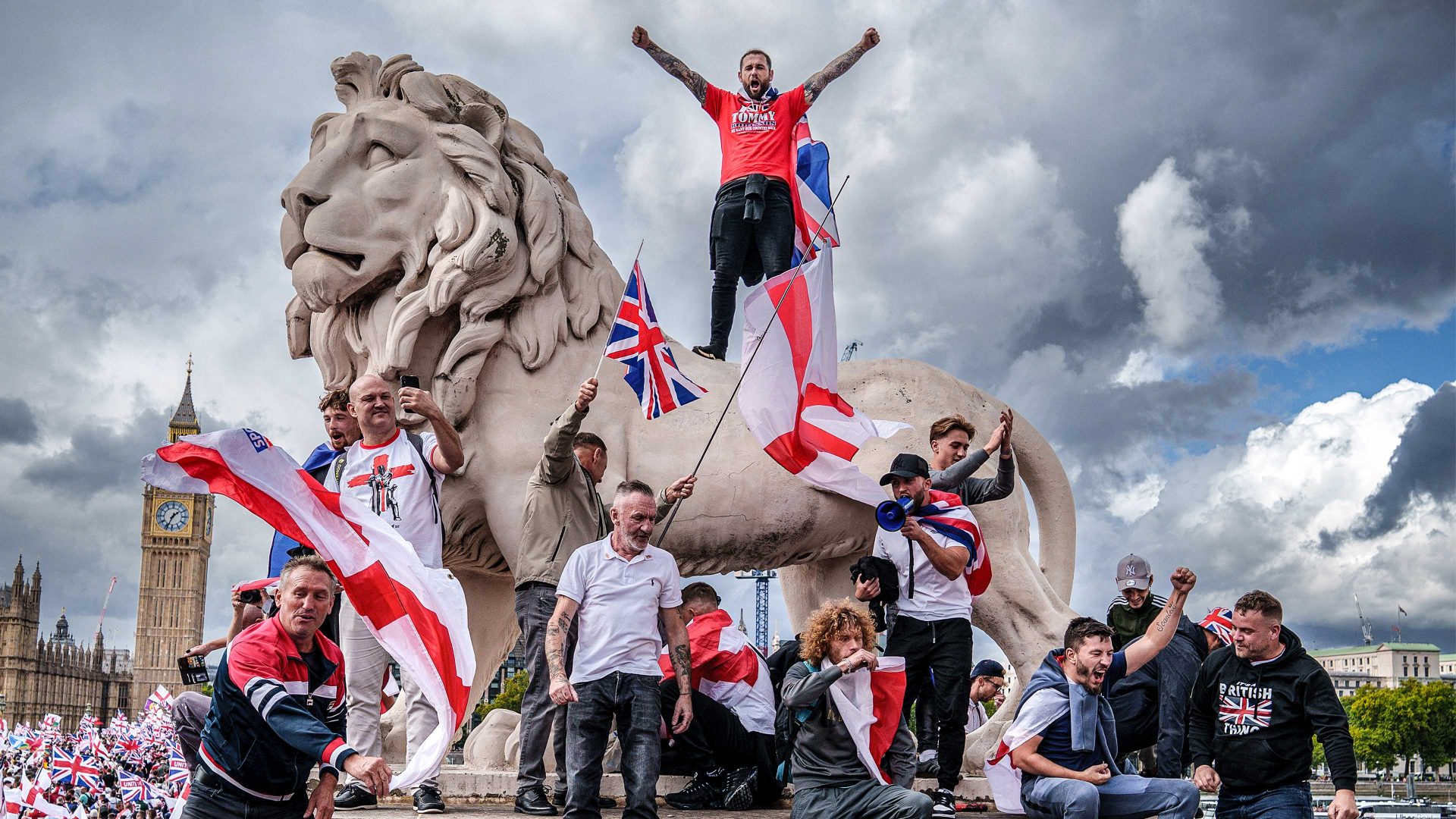As Keir Starmer prepares for Labour’s conference in Liverpool, there will be voices telling him that the right way to address what the BBC delight in calling “the rise and rise of Reform,” and the alarming sight of six-figure crowds for Tommy Robinson (sic), is to lean in a bit more towards them. I hope he ignores them.
Instead, I hope he sets out why it matters so much to the country, and the wider world, that the populist virus which gave us Brexit does not now put into power the man who, along with Boris Johnson, was most responsible for making it happen: namely Nigel Farage. And I hope he says it in those terms. “Brexit has been a disaster for the country, and it’s on Farage.”
I hope he rediscovers the Keir Starmer of old, the one driven by a passionate belief in human rights, the rule of law, respect, the responsibility of the strong to help take care of the weak, home and abroad. I hope he exposes forensically the damage that would be done by leaving the European Convention on Human Rights, without remotely helping the fight to get irregular immigration under control.
It would be nice to get a bit of history, to hear how the great, world-civilising postwar institutions came into being, the leadership not just of Churchill but of Starmer’s predecessors in the Attlee government; and a warning, that with no end to the war in Ukraine in sight, and Russia seeking to weaken and divide us through hybrid warfare, we play into Vladimir Putin’s hands by failing properly to challenge the agenda being set by the Farage/Jenrick/Yaxley-Lennon right.
This goes for the small boats “crisis” too. Small boats account for barely four per cent of all immigration – the public thinks it’s more than half – which has risen four-fold since Brexit, the last time immigration was seen as the most important issue.
The small boats issue is exactly that – an issue, a challenge, but it is not an existential threat, and we have to stop nodding along with those who pretend that it is. There is no doubt too that it is difficult, made more so by our loss of access to EU databases and the Brexit exit from the Dublin Convention.
But it can be sorted, just as an earlier, bigger, far deadlier asylum seeker crisis in the Aegean Sea was solved by a Turkey-EU deal which continues to hold.
Labour has done many good things in government, and they should be communicated better than they have been. But Starmer should not try to pretend that things have gone as well as he would have hoped.
Far better to admit things have proved tougher than he imagined, not least because the Tory inheritance was so poor; to admit that a tough first year will be followed by a tough second year, and that there are some very difficult decisions to be taken in the upcoming November budget.
Above all, he needs to set out the path to a much better Britain than the one we have, or the one the populists claim can be built on their toxic politics and fantasy economics.
None of this is easy. But it has to be done, and done well. Though a general election may be some way off, a very good conference and a solid budget are the minimum requirements to get the Labour show back on the road.

To a meeting with Antoine Renard, head of the UN World Food Programme in Palestine, just back from Gaza. Almost word for word, the 51-year-old Belgian echoed Unicef’s James Elder, who I met a few weeks ago, in saying that he had never seen anything quite so bad as the humanitarian crisis in Gaza right now… and this was before the onslaught on Gaza City began.
The tragedy, and the scandal, is that if the WFP had safe, predictable access, they could meet Gaza’s food needs at scale. How do we know? Because during the short pause in fighting earlier this year, they did so: 70,000 metric tons of aid for 1.3 million people, 12.5 million hot meals distributed across 60 community kitchens, bakeries producing three million loaves of bread daily,
Then followed Israel’s total blockade, which has swung the dial the other way, and now famine has been confirmed, albeit that the post-truth Netanyahu regime denies this as Hamas propaganda, as they do anything that doesn’t fit their narrative.
WFP has nearly 170,000 metric tons of food – enough to feed the entire population of Gaza for almost three months – in storage or in transit, spread across Ashdod Port in Israel, in Egypt, Jordan, and on the seas. But they are not being allowed to move it into Gaza at scale.
They need a minimum of 100 trucks a day to go in. They have the trucks, though many of their drivers have simply been denied access at the border. Added to which the entry points have been reduced, the checks increased, the general sense of buggeration that James Elder called “a nightmare.”
There can be an argument about whether Israel is conducting genocide, and hopefully one day that will play out in the international courts. There can be a debate about the extent of the malnutrition. There can be no argument that it exists, nor that there are people dying of starvation.
Some families, Renard told me, are eating animal feed to survive.
In disaster, there is always art, and though not allowed to leave Gaza, local artist Ahmed Muhanna has an exhibition currently touring Europe. Unsurprisingly, art canvases are in short supply amid the current devastation. So Ahmed has been using empty WFP aid boxes on which to paint and draw his depictions of the daily struggles of life in Gaza today.
Now, WFP and the EU have brought 60 of his paintings to Europe. The exhibition opened in Brussels last week, next stop Malmö.
You can see some of the paintings, and the full exhibition schedule, on the WFP’s Instagram account.
You may remember I recently asked a business audience in Singapore these three questions: which is the most powerful country in the world, the US or China? Which of those two will “win” the tariff trade war? And which is the greater threat to global stability?
They went for China 60%-40% on power, China four to one to win the trade war, and the USA four to one on causing global instability.
This week I did the same survey at three events in the UK. The Brits still see the US as the more powerful of the two; but by an even bigger margin than in Singapore, my sample thinks China will do best out of the trade wars, and that Trump’s America is a greater threat to stability than Xi Jinping’s China.
One of the events was a conference in Oxfordshire, with Mike Pompeo, who was Trump’s first-term CIA director and then his secretary of state.
“Does that not shock you?” I asked, seeing a large majority voting the US the bigger threat.
“No,” he said. “They all watch the BBC and CNN.”
Later, Pompeep flat-out said that the two-state solution was dead, that it was absurd to recognise Palestine because there was nobody on their side with whom we could sign an agreement.
Things were no less feisty when we got on to freedom of speech. I, for the life of me, cannot understand what the US Republicans are on about when they talk of our curbed free speech in the UK. He seemed genuinely troubled that I couldn’t see it.




